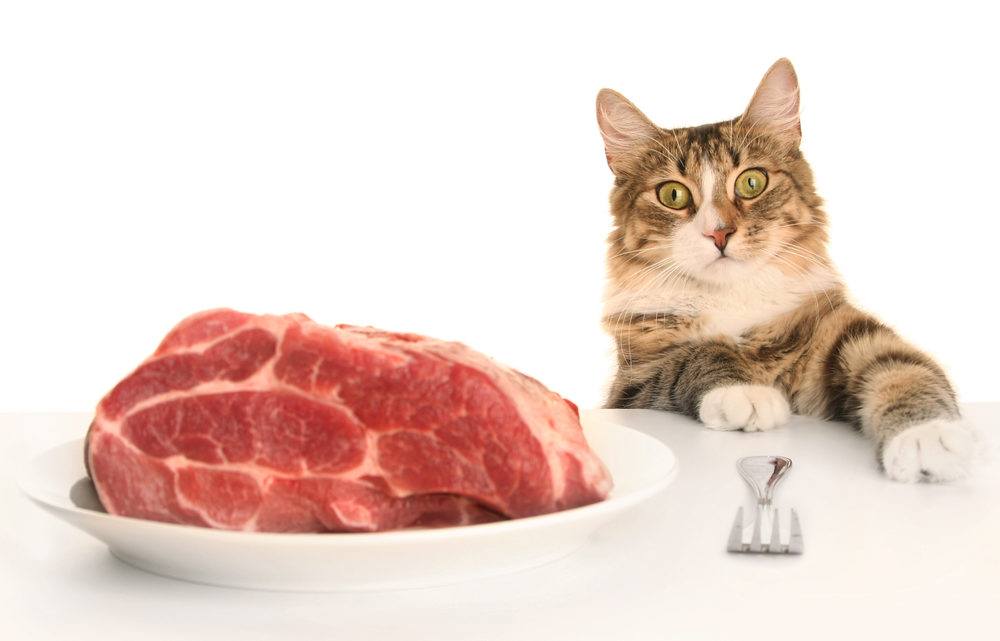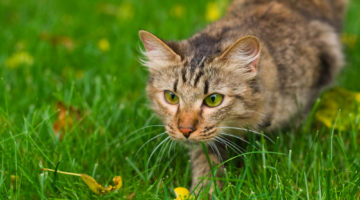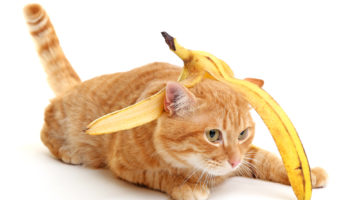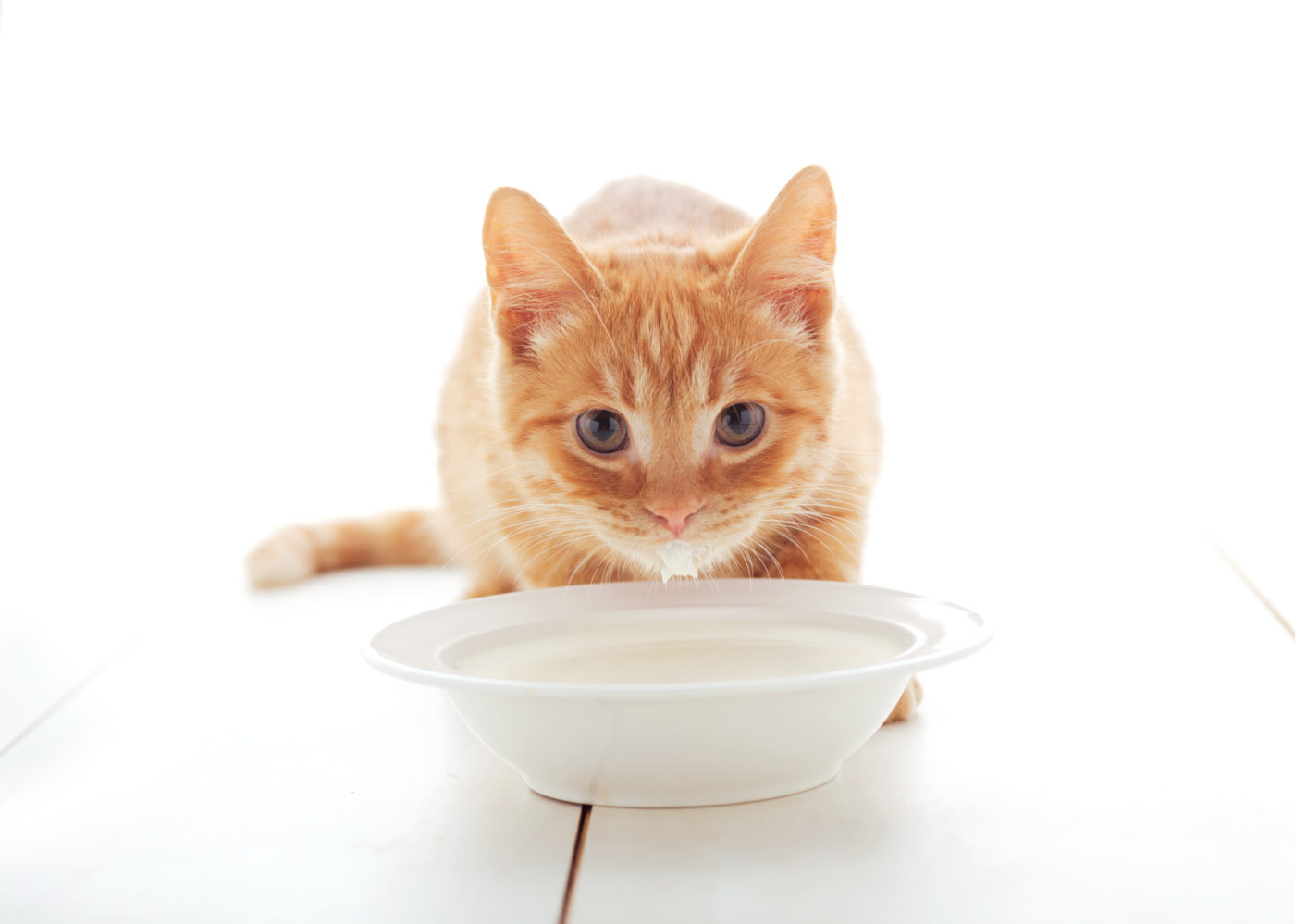Your cat needs a meat-based diet in order to stay healthy.
Many people who choose to be vegetarian do so for ethical reasons. But while a vegetarian diet may be a good choice for us (I’m vegetarian myself), it’s unhealthy and dangerous for our cats. Those who force their cats to eat meat-free diets are putting their personal beliefs ahead of their pets’ physiological requirements and well-being. That may sound blunt, but it’s my duty as a veterinarian to discourage cat owners from feeding plant-based diets to carnivorous animals that need meat in order to survive and thrive.
Cats are not only carnivores – they’re hypercarnivores
Also called obligate or true carnivores, all felines, both wild and domestic, big and small, must eat meat to survive. They can eat small quantities of plant-based food, but meat must be the main ingredient in their diet. True carnivores simply aren’t designed by Mother Nature to digest vegetable matter.
Cats must eat animal meat and organs to meet their nutritional needs, and plant-based proteins (grains and vegetables) are not a substitute. Your kitty lacks the specific enzymes necessary to use plant proteins as efficiently as animal proteins.
The proteins derived from animal tissue contain a complete amino acid profile. Amino acids are the building blocks of protein. Plant-based proteins don’t contain all the amino acids critical for the health of an obligate carnivore. Humans, who are omnivores, have the physiological ability to turn plant proteins into the missing pieces needed for a complete amino acid profile. Obligate carnivores do not.
Cats need meat, and lots of it
Cats also need much more protein in their diets than other animals. Kittens require one-and-a-half times more protein than puppies, and adult cats need two to three times the amount adult dogs require. The reason? While other mammal species use most of the protein they consume for growth and body maintenance, cats use it for this purpose plus as a source of energy.
When other species don’t get enough protein in the diets, their bodies make adjustments to conserve amino acids to manage the deficit. But your kitty’s body must continue to use protein even when it’s missing from his diet, which is why protein malnutrition is common in sick, injured and anorexic cats.
In addition to their increased need for protein, cats have a higher requirement for certain amino acids found naturally in animal tissue, including taurine. Taurine is found in animal muscle meat, particularly in the heart and liver, and a deficiency causes serious health problems in cats, including cardiovascular disease and blindness.
Cats have vitamin requirements that a vegetarian diet can’t provide
- Felines have a special need for vitamin A, which is naturally available only in animal tissue. They lack the intestinal enzymes necessary to convert the beta-carotene in plants to the active form of vitamin A, which is essential for vision, bone and muscle growth, reproduction and the health of epithelial tissues.
- Cats also require five times more dietary thiamine (vitamin B1) than dogs do. A thiamine deficiency can result in a poor quality coat, loss of appetite, hunched posture, neurologic problems including seizures, and even death. Since vitamin B1 isn’t stable in commercial pet foods, and levels drop significantly the longer the food is stored, many cats may be thiamine-deficient unless they’re eating a freshly-made real food diet or are receiving a quality supplement.
- Cats must consume vitamin D in their diets because they can’t synthesize it through their skin. The livers and fatty tissues of prey animals are rich in vitamin D.
- Kitties must also get arachidonic acid, an Omega 6 fatty acid, from their diet.
Offer a variety of meats to your cat – but avoid most fish
My recommendation is to feed your cat a nutritionally balanced, species-appropriate, meat-based fresh food diet. Give him a variety of meats like chicken, beef, rabbit and lamb from high quality sources, and on a rotating basis, to reduce the risk of food intolerances.
I don’t recommend a diet that’s exclusively fish protein. Most seafood today is heavily contaminated with toxic metals, industrial chemicals and pesticides. In addition, the fishmeal in most commercial pet foods contains the potentially deadly preservative ethoxyquin, as well as mycotoxins.
Too much fish in your cat’s diet can also create thiamine and vitamin E deficiencies over time, along with health problems associated with too much dietary iodine and magnesium.
With that said, it’s true that fish is a great source of Omega 3 fatty acids, which cats need to stay healthy. So I recommend sardines packed in water, or wild caught salmon, and/or supplement his diet with krill oil.
 Your cat also needs a moisture-rich diet
Your cat also needs a moisture-rich diet
Yet another distinctive biological feature of cats is their need to get most of their water intake from the food they eat, because they’re not as responsive as other animals to sensations of thirst or dehydration.
Unlike dogs, who drink frequently from their water bowls, cats fed a dry diet aren’t compelled to search for another source of water to make up the difference between what their bodies require and what their diet provides.
This can result in chronic mild dehydration, a condition that will ultimately result in disease, especially of the lower urinary tract and kidneys.
In short, your cat can’t be a vegetarian. He needs a fresh, whole meat-based diet to stay healthy.







No Comment